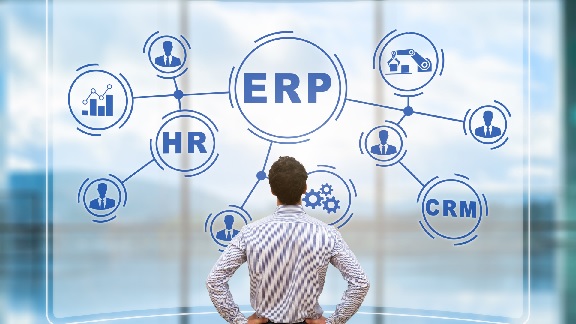In today’s fast-paced business landscape, operational efficiency is crucial for maintaining a competitive edge. Organizations must streamline their processes, optimize resource utilization, and enhance decision-making capabilities. An ERP system can help your organization accomplish these arduous yet necessary tasks. Here is how ERP can be a game-changer for operational efficiency, revolutionizing the way businesses operate and thrive.
Understanding ERP
To grasp the impact of ERP on operational efficiency, it’s important to understand what ERP is. So, what is ERP? Enterprise resource planning is a comprehensive software solution that integrates various business functions and processes, such as finance, human resources, supply chain, manufacturing, and customer relationship management, into a unified system. It provides a central database and a suite of tools to manage and automate these processes, enabling seamless communication, data sharing, and real-time visibility across departments.
Streamlined Processes and Workflows
One of the primary benefits of ERP is the ability to streamline processes and workflows within an organization. ERP eliminates manual and redundant tasks by automating routine processes, such as order management, inventory control, and financial transactions. This streamlines operations, reduces errors, and frees up resources to focus on more value-added activities. With standardized workflows and automated processes, organizations can achieve greater operational efficiency and productivity.
Improved Resource Utilization
ERP systems provide real-time visibility into resources, including inventory, equipment, and personnel. This allows businesses to optimize resource allocation and utilization. For example, ERP can help identify excess inventory, enabling organizations to reduce carrying costs and avoid stockouts. It can also assist in managing human resources by aligning skills and availability with project demands. By effectively utilizing resources, organizations can minimize waste, increase efficiency, and achieve cost savings.
Enhanced Data and Reporting
ERP systems act as a centralized repository for data, eliminating silos and promoting data integrity. This provides organizations with accurate, up-to-date, and comprehensive information for decision-making. ERP generates reports and analytics that offer insights into key performance indicators, financials, production, and customer behavior. With these insights, businesses can make informed decisions, identify areas for improvement, and implement strategies to enhance operational efficiency.
Streamlined Supply Chain Management
Efficient supply chain management is critical for organizations across industries. ERP systems enable seamless integration of supply chain functions, from procurement to logistics. By providing real-time visibility into inventory levels, order status, and supplier performance, ERP enhances supply chain planning, execution, and collaboration. This ensures timely delivery, reduces lead times, minimizes stockouts, and optimizes inventory levels. By streamlining the supply chain, organizations can meet customer demands, reduce costs, and gain a competitive advantage.
Enhanced Customer Relationship Management
ERP systems offer integrated customer relationship management (CRM) functionality, allowing organizations to manage customer interactions and relationships effectively. This includes tracking customer orders, managing service requests, and analyzing customer data. By consolidating customer information, organizations can provide personalized experiences, improve response times, and enhance customer satisfaction. A satisfied customer base translates into repeat business, positive word-of-mouth, and increased operational efficiency.
Compliance and Risk Management
Compliance with industry regulations and effective risk management are vital aspects of operational efficiency. ERP systems offer features and modules specifically designed to address compliance requirements and mitigate risks. With built-in controls and automated processes, ERP helps organizations enforce regulatory standards, monitor compliance activities, and mitigate risks associated with data security, financial reporting, and operational procedures. By having a robust ERP system in place, organizations can minimize compliance-related errors, avoid penalties, and proactively manage risks.
Continuous Improvement and Innovation
ERP systems provide organizations with valuable insights and data-driven metrics that enable continuous improvement and innovation. By analyzing performance indicators, identifying bottlenecks, and uncovering areas for optimization, ERP helps organizations drive operational excellence. With this information, businesses can implement process improvements, enhance productivity, and innovate to stay ahead of the competition. ERP acts as a foundation for continuous improvement initiatives, fostering a culture of innovation and enabling organizations to adapt and thrive in a dynamic business environment.
Scalability and Flexibility
ERP systems are designed to accommodate the changing needs and growth of organizations. They provide scalability and flexibility to adapt to evolving business requirements. Whether it’s expanding into new markets, adding new product lines, or integrating acquisitions, ERP can seamlessly support these transitions. With a scalable and flexible ERP solution, organizations can adapt quickly, optimize operations, and maintain operational efficiency even in the face of growth and change.
Final Thoughts
By implementing an ERP system, businesses can achieve greater productivity, cost savings, customer satisfaction, and ultimately, sustainable growth. Embracing ERP is no longer an option but a necessity for organizations looking to stay ahead and succeed in the digital era.
